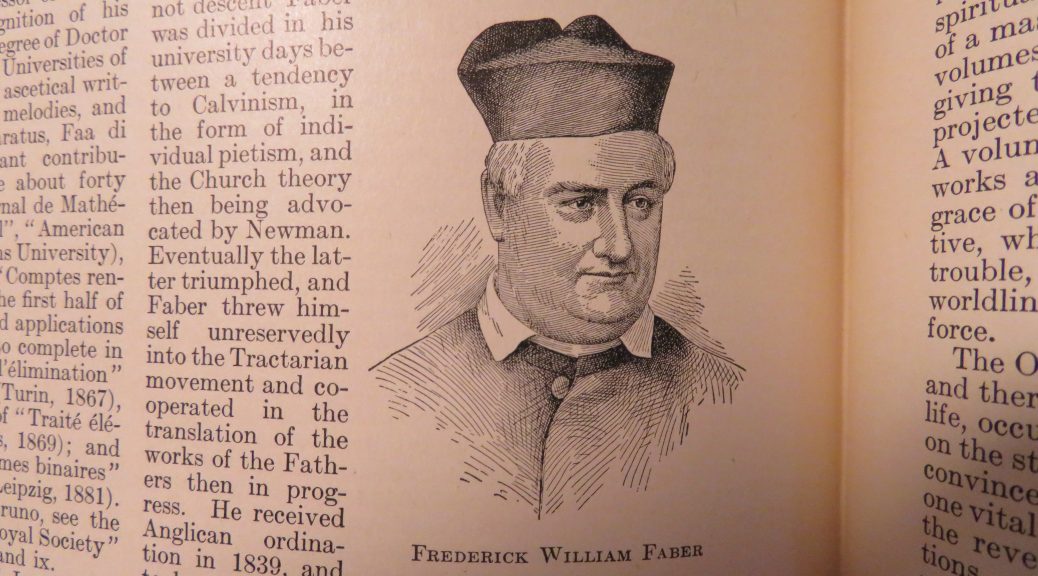
In one of the Conferences published in an 1858 collection entitled Spiritual Conferences, Fr. Frederick William Faber of the London Oratory chose the topic On Taking Scandal. Addressing an audience of English Catholics, many of them converts like himself, he dissects the curious ways in which religious people in particular relish in the emotional satisfaction of taking scandal at the wrong-doing, actual or suspected, of others. He says:
To give scandal is a great fault, but to take scandal is a greater fault. It implies a greater amount of wrongness in ourselves, and it gives a greater amount of mischief to others. Nothing gives scandal sooner than a quickness to take scandal. They regard it as a sort of evidence of their own goodness, and of their delicacy of conscience; while in reality it is only a proof either of their inordinate conceit, or of their extreme stupidity…Moreover the persons in question seem frequently to feel and act, as if their profession of piety involved some kind of official appointment to take scandal. It is their business to take scandal. It is their way of bearing testimony to God. It would show a blameable inertness in the spiritual life, if they did not take scandal. They think they suffer very much while they are taking scandal; whereas in truth they enjoy it amazingly. It is a pleasurable excitement, which delightfully varies the monotony of devotion. They do not in reality fall over their neighbor’s fault, nor does it in itself hinder them in the way of holiness, nor do they love God less because of it, all of which ought to be implied in taking scandal. But they trip themselves up on purpose, and take care that it shall be opposite some fault of their neighbor, in order that they may call attention to the difference between him and themselves.
Dwelling on the wickedness of others, in other words, does not make us virtuous. I would add that it could even make us worse because a person can easily fall into self-justification of one’s own faults and sins on the excuse that, “well, what I do is nothing compared to….”
Father Faber points out in this same conference that “taking scandal” is not a characteristic of the lives of the Saints.
I do not remember to have read of any saint who ever took scandal… Every time we take scandal we run a great risk of sinning, and a manifold risk as well as a great one. We run the risk of impairing God’s glory, of dishonoring our Blessed Lord, of giving substantial scandal to others, of breaking the precept of charity ourselves, of highly culpable indiscretion, and, at the very least, of grieving the Holy Spirit in our own souls.
So then, what is the proper spiritual disposition we should strive to cultivate when we are confronted by undoubted facts of wickedness, and if we are to avoid “taking scandal” in the pharisaic way which Fr. Faber preached against during his lifetime in the High Victorian Age? It is our own co-operation with grace in our continuing conversion to Christ.
This is perfection, this is the temper and genius of saints and saint-like men. It is a life of desire, oblivious of earthly things. It is a radiant energetic faith, that man’s slowness and coldness will not interfere with the success of God’s glory. Yet all the while it is instinctively fighting, by prayer and reparation, against evils… No shadow of moroseness ever falls over the bright mind of a saint. It is not possible that this should do so. Finally, perfection has the gift of entering into the universal spirit of God, who is worshipped in so many different ways, and is content.
(Pastor’s Note from the Mary Immaculate of Lourdes Parish Bulletin for September 2, 2018)

